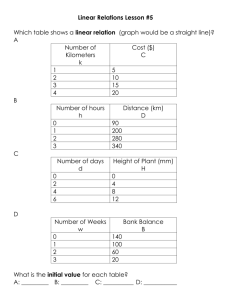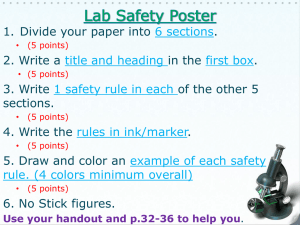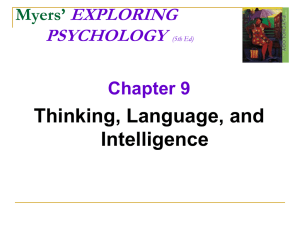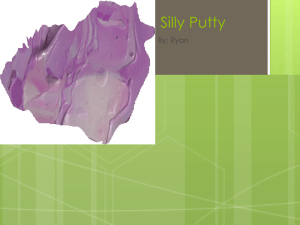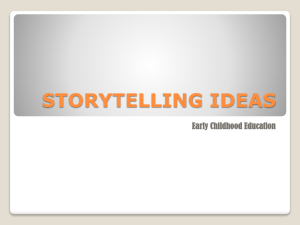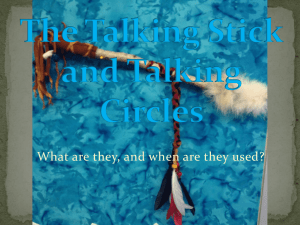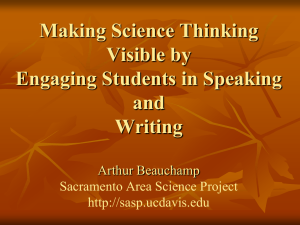SS9 Epistemology Worksheet
advertisement
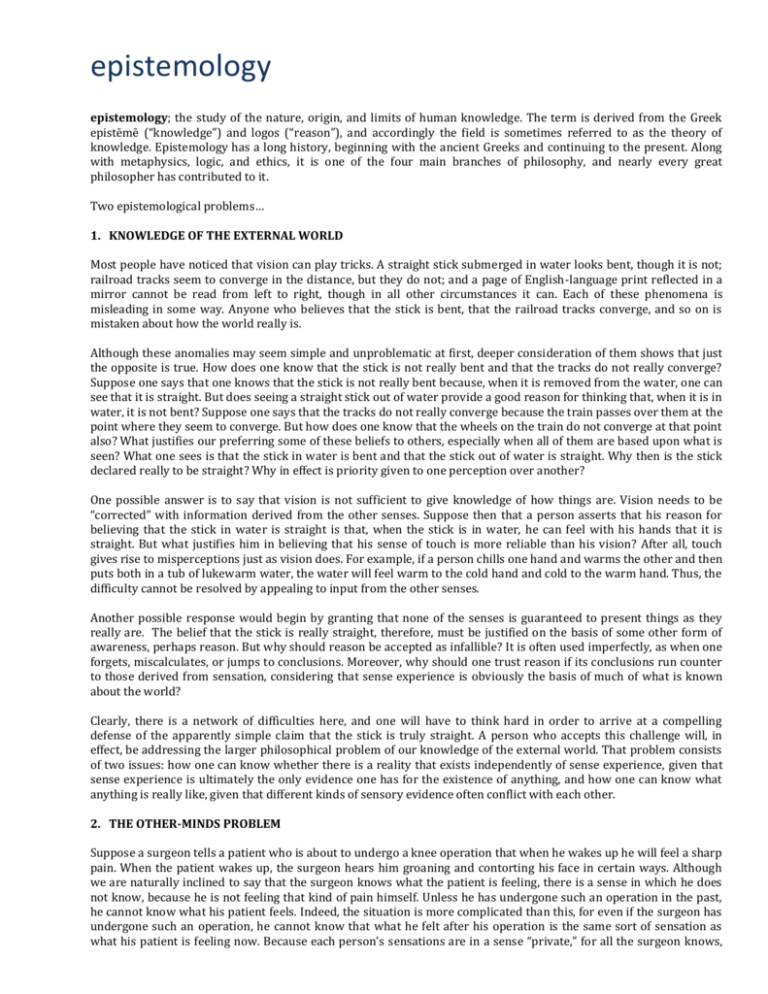
epistemology epistemology; the study of the nature, origin, and limits of human knowledge. The term is derived from the Greek epistēmē (“knowledge”) and logos (“reason”), and accordingly the field is sometimes referred to as the theory of knowledge. Epistemology has a long history, beginning with the ancient Greeks and continuing to the present. Along with metaphysics, logic, and ethics, it is one of the four main branches of philosophy, and nearly every great philosopher has contributed to it. Two epistemological problems… 1. KNOWLEDGE OF THE EXTERNAL WORLD Most people have noticed that vision can play tricks. A straight stick submerged in water looks bent, though it is not; railroad tracks seem to converge in the distance, but they do not; and a page of English-language print reflected in a mirror cannot be read from left to right, though in all other circumstances it can. Each of these phenomena is misleading in some way. Anyone who believes that the stick is bent, that the railroad tracks converge, and so on is mistaken about how the world really is. Although these anomalies may seem simple and unproblematic at first, deeper consideration of them shows that just the opposite is true. How does one know that the stick is not really bent and that the tracks do not really converge? Suppose one says that one knows that the stick is not really bent because, when it is removed from the water, one can see that it is straight. But does seeing a straight stick out of water provide a good reason for thinking that, when it is in water, it is not bent? Suppose one says that the tracks do not really converge because the train passes over them at the point where they seem to converge. But how does one know that the wheels on the train do not converge at that point also? What justifies our preferring some of these beliefs to others, especially when all of them are based upon what is seen? What one sees is that the stick in water is bent and that the stick out of water is straight. Why then is the stick declared really to be straight? Why in effect is priority given to one perception over another? One possible answer is to say that vision is not sufficient to give knowledge of how things are. Vision needs to be “corrected” with information derived from the other senses. Suppose then that a person asserts that his reason for believing that the stick in water is straight is that, when the stick is in water, he can feel with his hands that it is straight. But what justifies him in believing that his sense of touch is more reliable than his vision? After all, touch gives rise to misperceptions just as vision does. For example, if a person chills one hand and warms the other and then puts both in a tub of lukewarm water, the water will feel warm to the cold hand and cold to the warm hand. Thus, the difficulty cannot be resolved by appealing to input from the other senses. Another possible response would begin by granting that none of the senses is guaranteed to present things as they really are. The belief that the stick is really straight, therefore, must be justified on the basis of some other form of awareness, perhaps reason. But why should reason be accepted as infallible? It is often used imperfectly, as when one forgets, miscalculates, or jumps to conclusions. Moreover, why should one trust reason if its conclusions run counter to those derived from sensation, considering that sense experience is obviously the basis of much of what is known about the world? Clearly, there is a network of difficulties here, and one will have to think hard in order to arrive at a compelling defense of the apparently simple claim that the stick is truly straight. A person who accepts this challenge will, in effect, be addressing the larger philosophical problem of our knowledge of the external world. That problem consists of two issues: how one can know whether there is a reality that exists independently of sense experience, given that sense experience is ultimately the only evidence one has for the existence of anything, and how one can know what anything is really like, given that different kinds of sensory evidence often conflict with each other. 2. THE OTHER-MINDS PROBLEM Suppose a surgeon tells a patient who is about to undergo a knee operation that when he wakes up he will feel a sharp pain. When the patient wakes up, the surgeon hears him groaning and contorting his face in certain ways. Although we are naturally inclined to say that the surgeon knows what the patient is feeling, there is a sense in which he does not know, because he is not feeling that kind of pain himself. Unless he has undergone such an operation in the past, he cannot know what his patient feels. Indeed, the situation is more complicated than this, for even if the surgeon has undergone such an operation, he cannot know that what he felt after his operation is the same sort of sensation as what his patient is feeling now. Because each person’s sensations are in a sense “private,” for all the surgeon knows, what he understands as pain and what the patient understands as pain could be very different. (Similar remarks apply to our use of colour terms. For all a person knows, the colour sensation he associates with “green” could be very different from the sensations other people associate with that term. This possibility is known as the problem of the inverted spectrum.) It follows from this analysis that each human being is inevitably and even in principle prevented from having knowledge of the minds of other human beings. Despite the widely held conviction that in principle there is nothing in the world of fact that cannot be known through scientific investigation, the other-minds problem shows to the contrary that an entire domain of human experience is resistant to any sort of external inquiry. Thus, there can never be a science of the human mind. ** Adapted from http://www.britannica.com/EBchecked/topic/190219/epistemology/247944/Two-epistemologicalproblems Follow Up Questions: 1. Do you believe it is possible to have any concrete knowledge at all; something you can know for 100% certainty exists or is true? 2. Does reason (thinking) provide us with knowledge of the world independently of experience? In other words could you reason out what the ocean looks like when you’ve never actually seen it or even had it explained to you? Could you come up with the idea of an ocean all on your own? 3. Does our knowledge represent reality as it really is, or is what we perceive different (a little or a lot) from what really is happening? How much might our preconceived notions and beliefs distort what our senses take in or how much might we miss while we day dream? 4. We know some people can’t see certain colours, what do you think of the idea that people might perceive colours differently from each other? That what you call green might appear to be red to someone else and visa versa; how would you ever know?
